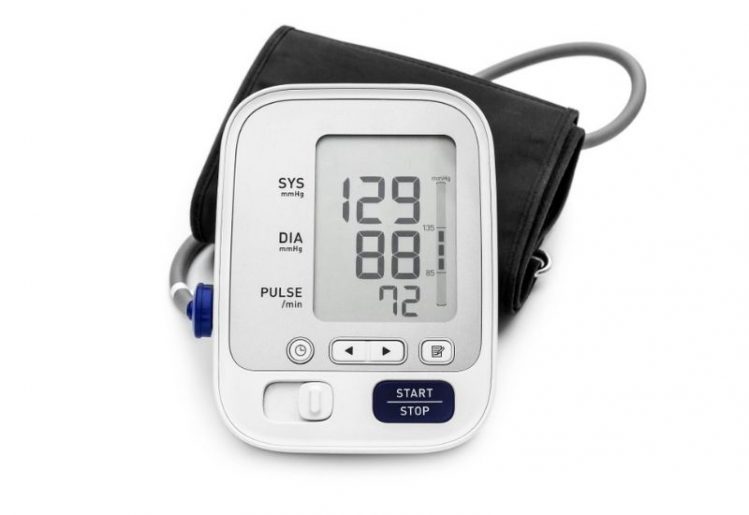Why America Experienced an Increase in High Blood Pressure During the Pandemic
New data indicates that Americans saw an increase in high blood pressure during the pandemic; an increase that was more prevalent in women. There are a number of reasons why healthcare experts believe hypertension rates have increased over the course of the pandemic. Understanding these factors and how you can mitigate your chances of increased blood pressure during the pandemic can help you to maintain optimal heart health. Here is what you need to know about hypertension, the effects of the pandemic on heart health and what you can do to protect yourself.
Understanding Hypertension
 Blood pressure is the measurement of the pressure of blood pushing against the walls of your body's arteries. These arteries are what transports blood from the heart to all other parts of the body. While it is natural for blood pressure to fluctuate throughout the day, pressure that remains too high for a long period can damage the heart. Hypertension is a medical condition that occurs when the body's blood pressure remains elevated for an extended period of time.
Blood pressure is the measurement of the pressure of blood pushing against the walls of your body's arteries. These arteries are what transports blood from the heart to all other parts of the body. While it is natural for blood pressure to fluctuate throughout the day, pressure that remains too high for a long period can damage the heart. Hypertension is a medical condition that occurs when the body's blood pressure remains elevated for an extended period of time.
Blood pressure is measured at two distinct points. Systolic blood pressure is the measurement taken when the heart is pumping. Conversely, diastolic blood pressure is the measurement when the heart is at rest between beats. According to the American College of Cardiology and the American Heart Association, hypertension is defined as blood pressure levels that measure at or above 130/80 mmHg. Stage 2 hypertension is blood pressure readings that are at or above 140/90 mmHg.
These numbers are an important indicator of your overall health. People with hypertension are more likely to suffer from a stroke or heart disease. High blood pressure can also cause damage to the eyes, liver and brain.
Increase in High Blood Pressure During the Pandemic
It is clear that the effects of the COVID-19 pandemic stretch far beyond the direct impacts of the deadly virus. A recent study published in the journal Circulation demonstrated that there was a noticeable increase in high blood pressure during the pandemic.
The study showed that blood pressure increased in American adults during the pandemic when compared to non-pandemic years. Specifically, the researchers discovered that there was no significant difference in blood pressure readings between years prior to the pandemic.
However, for each month of the pandemic, blood pressure levels increased by an average reading of 1.1 to 2.5 millimeters of mercury (mmHg) for systolic blood pressure. When looking at diastolic blood pressure, the readings increased from 0.14 to 0.53 mmHg. This average applied to both males and females in different age groups.
When taken as an average, females showed a larger rate of increase in both systolic and diastolic blood pressure. In addition, a greater rate of systolic blood pressure increase was demonstrated in older subjects. However, younger subjects demonstrated a higher diastolic blood pressure increase.
Reasons for Spike in Hypertension
There are a number of factors that could have influenced this increase in overall blood pressure levels across the US population. As people holed up at home, they also tended to eat and drink more. Many people relied on takeout food to get them through this time; a type of dietary choice known for its higher sodium levels. The stress of the pandemic also led people to make poorer dietary choices.
Not having access to a gym may have contributed to increasing rates of hypertension. Lastly, some research indicates that some people put off seeing their doctors, particularly during the early days of the pandemic. All of these factors became a recipe for disaster when it came to the overall health of the American population. Those who were prone to developing hypertension were no exception.
How You Can Maintain Good Heart Health
Even if you know that your lifestyle habits have not been the best during the pandemic, it is not too late to reverse course. There are a variety of things that you can do to discourage the onset of hypertension and promote good heart health.
Eat Heart-healthy Foods
One of the best ways to boost your heart health is to eat foods that support this goal. There are a number of heart-healthy foods that you can eat that will work to lower blood pressure. Good choices include salmon, avocados and leafy green vegetables.
Move Your Body
Because your heart is a muscle, it makes sense that strengthening it through exercise will improve heart health. This makes a regular exercise routine an important component in your goal to boost your heart health and lower blood pressure. As a bonus, regular exercise will also support a healthy weight.
Manage Stress
 As you feel stress, your blood pressure naturally rises. Taking steps to manage stress will help to keep this blood pressure at manageable levels, improving the function and health of your heart.
As you feel stress, your blood pressure naturally rises. Taking steps to manage stress will help to keep this blood pressure at manageable levels, improving the function and health of your heart.
Supplements
Health-conscious individuals recognize the importance of supplements in an overall health plan. A supplement such as Cardiochron supports a healthy cardiovascular system by guarding against free radicals and promoting overall cardiovascular health.
Although the pandemic is still present, there are things that you can do to keep blood pressure in check and reverse the potential damage of the last couple of years.




